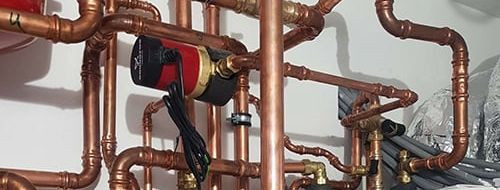How to choose the right ventilation system
Ventilation systems are crucial components in both residential and commercial buildings, ensuring the circulation of fresh air while removing stale air, pollutants, and moisture. A well-designed ventilation system contributes significantly to indoor air quality, comfort, and energy efficiency.
Importance of Choosing the Right Ventilation System
Choosing the right ventilation system is essential for maintaining a healthy indoor environment. The right system can prevent issues such as mold growth, poor air quality, and excessive energy consumption. It also plays a vital role in ensuring the comfort and well-being of occupants.
Types of Ventilation Systems
Natural ventilation relies on natural forces like wind and thermal buoyancy to circulate air through a building. This type of system is cost-effective and energy-efficient, but its effectiveness can be limited by weather conditions and building design.
Mechanical ventilation systems use fans and ducts to control air movement. They are more reliable than natural systems and can be tailored to specific needs, such as heat recovery or air filtration. Common types include exhaust-only, supply-only, and balanced systems.
Hybrid ventilation combines natural and mechanical systems to optimize air quality and energy efficiency. These systems can automatically switch between modes based on environmental conditions, providing flexibility and control.
Factors to Consider When Choosing a Ventilation System
The type and usage of a building significantly influence the choice of ventilation system. Residential homes, commercial offices, and industrial facilities have different requirements based on occupancy, activities, and design.
Local climate and environmental conditions play a crucial role in determining the most suitable ventilation system. Areas with extreme temperatures or high humidity may require more robust systems to maintain comfort and air quality.
Energy efficiency is a key consideration for many homeowners and businesses. Systems with energy recovery features, such as heat exchangers, can reduce energy consumption and lower utility bills.
Budget constraints often influence the choice of ventilation system. It's important to balance initial costs with long-term savings and benefits. Investing in a high-quality system can lead to reduced maintenance and operational costs over time.
Regular maintenance is essential for the longevity and performance of a ventilation system. Consider systems that are easy to maintain and have a reputation for durability and reliability.
Common Mistakes to Avoid
When selecting a ventilation system, avoid common mistakes such as underestimating the required capacity, neglecting maintenance needs, and ignoring local building codes and regulations. These errors can lead to poor performance and increased costs.
Expert Tips for Selecting the Best Ventilation System
Consulting with experts can provide valuable insights into the best ventilation solutions for your specific needs. Consider factors such as system scalability, integration with existing HVAC systems, and the potential for future upgrades.






Comments (0)